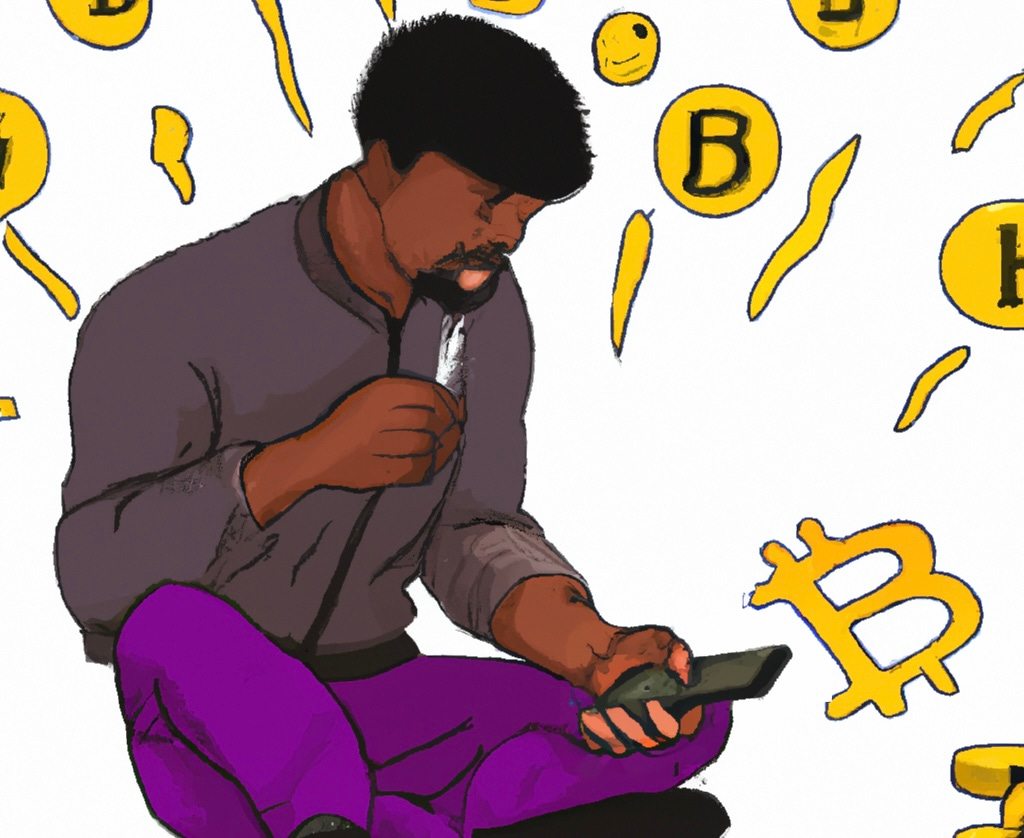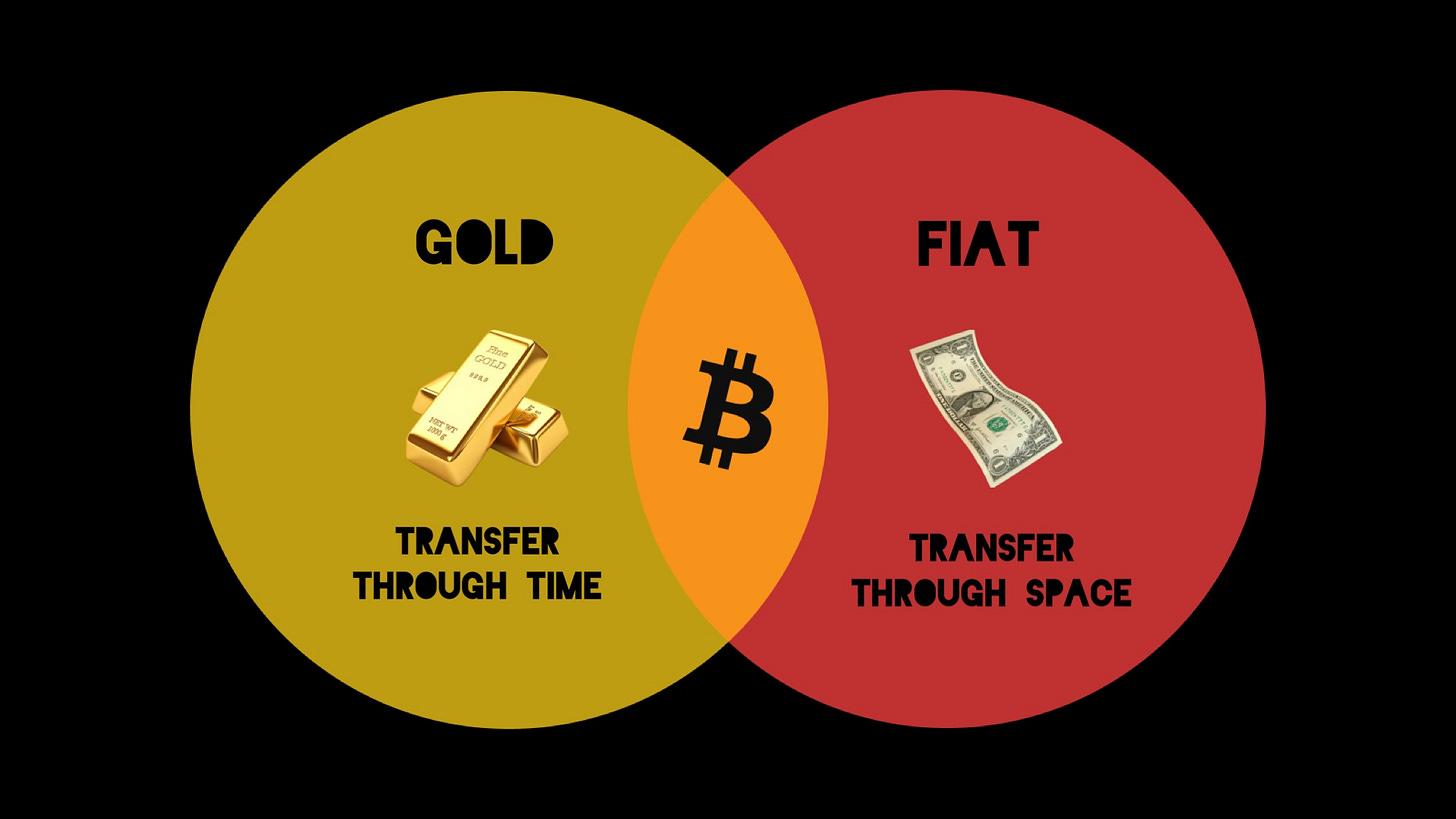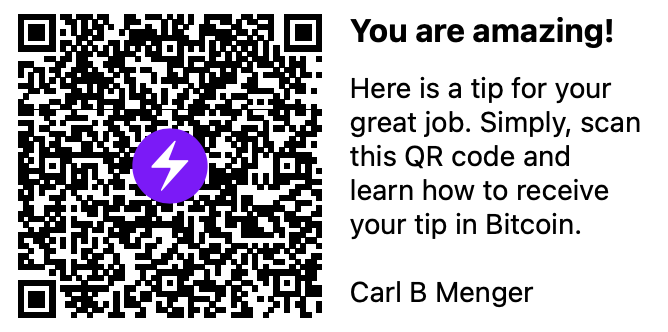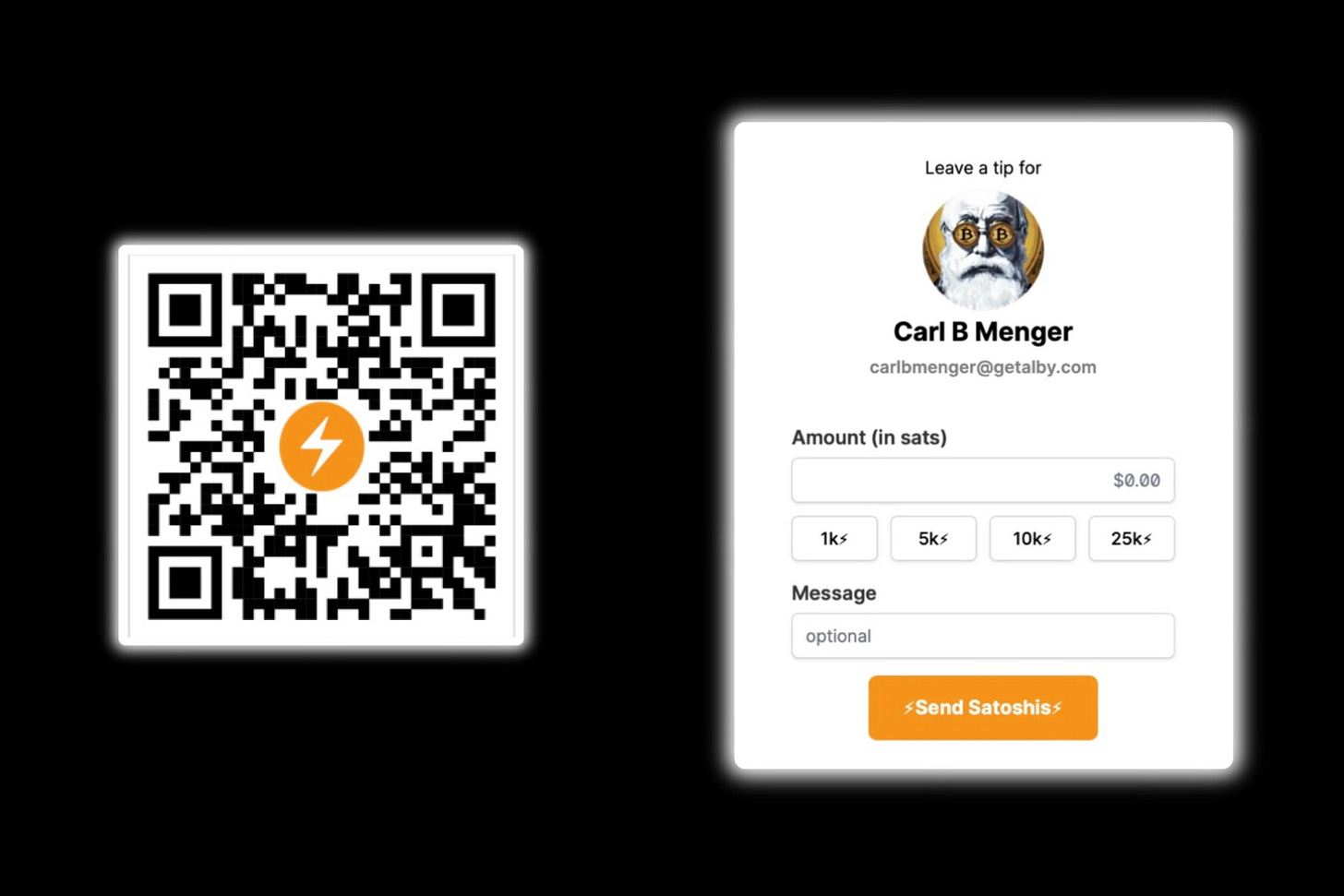The Adoption Dilemma
Episode X. Block height: 796000. Fixing the Bitcoin Adoption Dilemma: HODLing Bitcoin is important, but so is spending. Let me explain.
The Week in Bitcoin
The ETF Wave: On June 15th 2023, the world’s largest asset manager, BlackRock - with over $9 trillion in assets under management — shocked the TradFi world when it filed an application for a Bitcoin spot ETF. As a result, others have also filed or renewed their application with the SEC (Valkyrie, Fidelity,…)
Deutsche Bank: Deutsche Bank has applied to Bafin (German Federal Financial Administration) for a regulatory license to provide custody services for digital assets such as cryptocurrencies.
Bitcoin Lightning Network ⚡️: The Lightning network has reached a record 5,630 Bitcoin ($172 million) in capacity for the first time. The network has grown 42% in Bitcoin capacity and 105% in US dollar capacity over the past 12 months.
I know, I know, HODLING is the way to go, the mantra that is prevalent in the Bitcoin community. And according to Gresham's Law it also makes perfectly sense that you HODL the good money (Bitcoin) and spend the bad (Fiat money).
Nonetheless, my ElSalvador and Guatemala trip showed me that spending Bitcoin is 1) fun and 2) important for adoption, otherwise we will be stuck in the so-called “Adoption Dilemma”:
Why should companies accept Bitcoin if no one spends it and how can you spend Bitcoin if no company accept it?
For this reason, my new personal approach is Spend and Replace. What I mean by that and how I do it in countries where Bitcoin is not legal tender, I gonna show you in this episode. But first things first: Why are we hodling Bitcoin?
Gresham’s Law
Simply speaking, because of Gresham’s Law, which can be described as a monetary principle that states that, “bad money will drive out good money.” The law was originally based upon the composition of coins and the overall tangible value of the metals used to make them.
Throughout the history of currency, coins have been composed of precious metals, such as Gold or Silver, which gave the coins their natural value. However, over time, coin issuers would reduce the amount or percentage of precious metals used in their composition and attempted to implement them as full-value currency by law. Those were the early days of money debasement, called clipping.
Of course, these coins, which now contained less Gold or Silver, were imprinted with the same higher face value, making the new coins overvalued, while old coins are legally undervalued. Governments and similar coin issuers would do this to gain revenue via seigniorage and use that revenue to pay older debts, which is nothing other than debt devaluation through inflation. Sounds familiar?
Since the value of the metal in older coins are higher than metal found in new coins, citizens have a very transparent incentive to prefer those old coins with higher precious metal content. As long as both types of coins must be treated as the same unit of currency by law, buyers will pass their less precious coins on as fast as they can and hold onto their older coins. As a result, bad money will then circulate through the market and economy, and good money gets removed from market circulation.
But why hodl Bitcoin?
Bitcoin combines the characteristics of Fiat money, i.e. the easier transfer through space, with the characteristics of Gold, i.e. the better transfer through time. Bitcoin is therefore the next logical stage of iteration, because people naturally want to escape the cost of dilution, and so the very same broader dynamic of cost minimization in regard to economic exchange, that dethroned livestock (cows) in favor of metal coins now makes itself known again.
Whenever a new monetary iteration process takes place, it must be noted that these processes are not smooth and straightforward, but occur in waves. Every iteration process initially brings volatility, which only decreases as the new money becomes more widespread. It must also be emphasized that these processes are always initiated by the fact that at the beginning there are more and more people who collect and hoard (HODL) the new, superior money.
The more people hodl the new money, the higher the valuation in comparison to all other goods over time will be, this of course acts as information to the collectors, signaling that it is suddenly profitable to expend more resources in order to acquire more units. This price increase lead to more resources being devoted to producing the better money.
The fact that Bitcoin is absolutely limited to 21 million units, means that it is completely inelastic to increased demand. If Bitcoin proves to be a better (through space and time) form of money and more people collect Bitcoin for this reason, the price will have to increase compared to all other goods, because the supply can't be expanded.
Why spend Bitcoin then?
So, as we have seen, while it perfectly makes sense to HODL Bitcoin, it is also hindering adoption, as I experienced first hand in El Salvador: Many El Salvadoran entrepreneurs I have spoken with have euphorically accepted Bitcoin for goods and services, when the Bitcoin law came into effect. Maybe you remember the pictures of the ‘Bitcoin accepted’ signs in the media.
Unfortunately, the demand for Bitcoin payments has failed to materialize outside of some regions, thus many entrepreneurs stopped training their employees, on how to accept Bitcoin payments. As a result, many "Bitcoin accepted" signs have disappeared and one often hears, especially outside Bitcoin Beach, that Bitcoin cannot be accepted at the moment because no employee knows how to do it and/or there are some ‘technical issues’.
Why spend training resources if no one appreciates the service? In this context, I then also noticed how important it is as a Bitcoiner to ask everywhere if Bitcoin is accepted as a means of payment. Because, of course, an entrepreneur will think more about accepting Bitcoin and devoting resources to it, if a couple of people ask for Bitcoin payment in a certain period of time than none.
We must also remind ourselves, that few people are as fascinated by Bitcoin as we are. Therefore, they need an incentive to invest resources (time) to accept Bitcoin. If the company sees that it can appeal to a broader target group and thus increase its sales figures, it is more willing to invest resources than if it sees no incentive to do so at all.
Thus, if we all just HODL our coins, then we should not be surprised about lack of Bitcoin adoption. This is exactly what I am referring to as ‘The Adoption Dilemma’:
And of course, it is up to you what you are doing with your Bitcoin stack. I also don't think that you have to spend vast sums of your hoarded coins to contribute to adoption. My approach is much more subtle: Set yourself a HODL goal and when you have reached it then switch to Spend and Replace. Your stack still increases in fiat terms over time and, at the same time, you are able to support early Bitcoin entrepreneurs and thus drive Bitcoin adoption.
In the hamster wheel?
And I know, the more Bitcoin you stack, the better it is. However, I often wonder if this approach really gives you the freedom you were hoping for, or if you haven't become a slave to another system again. I think everything in life always needs a certain balance, because the most important thing is lifetime, and even the biggest Bitcoin stack can't give you that. I, for example, felt the most freedom when I was travelling through El Salvador with my stack where I could contribute to the Bitcoin economy, completely independent of the fiat system.
Ok, Carl, I get your point, but how the hell can I spend Bitcoin if I don't live in El Salvador? With a few tricks, you can easily contribute to Bitcoin adoption. And believe me, you're going to have a lot of very interesting discussions on the way.
How to spend?
Lightning Wallet
First and foremost, you should download a Lightning Wallet, which you can then handle like a digital purse and use for small/microtransactions. You should be aware that these are mostly custodial, which means that you should not secure your life savings with these wallets. However, it offers the advantage that Bitcoin payments are instant and with very low fees, so yes you even can pay your coffee with Bitcoin.
There are numerous lightning wallets: Two I personally use and would recommend are Muun Wallet and Wallet of Satoshi. The beauty with those two wallets is that you can switch seemingly between on-chain and lightning transactions.
Lightning Tip Cards
Outside of El Salvador, in countries where Bitcoin is not legal tender (yet), I have gotten into the habit of tipping people in Bitcoin. This accomplishes two things: 1) The person who receives the tip has to learn about Bitcoin and sees how the network is functioning. The incentive becomes greater the more tips he/she gets. 2) This person will definitely talk to family, friends and even his/her employer about this ‘strange’ method of tipping. This can make the owner of the business aware of Bitcoin, and if it often happens, he/she will think about accepting Bitcoin in his/her store to reach more clients eventually.
Of course, you are rightly asking yourself how this can be implemented in an easy and smooth way. Fortunately, there is an Austrian IT company called Satoshi Engineering that deals with these gimmicks on the side and without any financial interest. I regularly use their Lightning Tip cards, which simply can be customized, loaded up with Sats and printed out with the amount you desire to tip. Absolutely free. Check it out:
Bitcoin Maps
If you want to pay directly with Bitcoin and not just tip, there is one problem: How do you know where Bitcoin is accepted? For that, there are so-called Bitcoin Maps, which list those businesses that accept Bitcoin as payment. One of them that I really like to use is BTC Map: You can add new business, and confirm via lightning the ones who are already mentioned in the map, so that everything stays up to date. At least check out the Bitcoin companies in your area!
The End
That's it for this episode. I hope you gathered some valuable knowledge from this one. Keep stacking AND start spending, so we can solve the Adoption Dilemma together!
Thanks for reading and see you hopefully in the next one. Until then, remember: Hodling AND Spending Bitcoin matters.
₿ critical, ₿ informed, ₿ prepared. Yours,
B informed
[VIII] The Bitcoin Retirement Plan
[VII] Bitcoin in Guatemala
Education for everyone
No pay walls. No sponsored articles. Just pure, independent and free education. And I will keep it that way. If you truly want to support my work, you can donate Sats via lightning. Cheers!
Recommended Hardware - Wallet
F* Ledger! Read everything about Bitcoin Self-Custody in my episode ‘Take back control over your Bitcoin, now’ and get yourself a proper hardware wallet: Shiftcrypto’s The Bitbox Bitcoin only is my favorite. Swiss made, Great customer support and worldwide shipment.
Education is key
[1] Carl Menger, Principles of Economics
[2] Andreas Antonopoulos, Mastering the Lightning Network: A Second Layer Blockchain Protocol for Instant Bitcoin Payments
[3] Nathaniel Popper, Digital Gold: The Untold Story of Bitcoin
[4] Jason P. Lowery, Softwar: A novel theory on power projection and the national strategic significance of Bitcoin
[5] David Orrell, The Evolution of Money.
[6] Ryan Holiday, Courage Is Calling: Fortune Favors the Brave
[7] Alex Gladstein, Hidden Repression: How the IMF and World Bank Sell Exploitation as Development











Carl, I greatly appreciate your words of hope and the valuable learning experience they provide. As someone who is relatively new to the Bitcoin environment, I have embraced a positive outlook as a Bitcoin maximalist, with a strong desire to earn Bitcoin. Your insights have further ignited my passion to create something of significant value.
Completely agree with you and as a stacker and holder of Bitcoin I sometimes asked myself the same question. Why am I buying and holding Bitcoin and don’t want to spend it now. And that’s my answer: now. I think is too early to engage in spending until someone pays me in Bitcoin. That day will come but in the meantime the adoption dilemma continues.